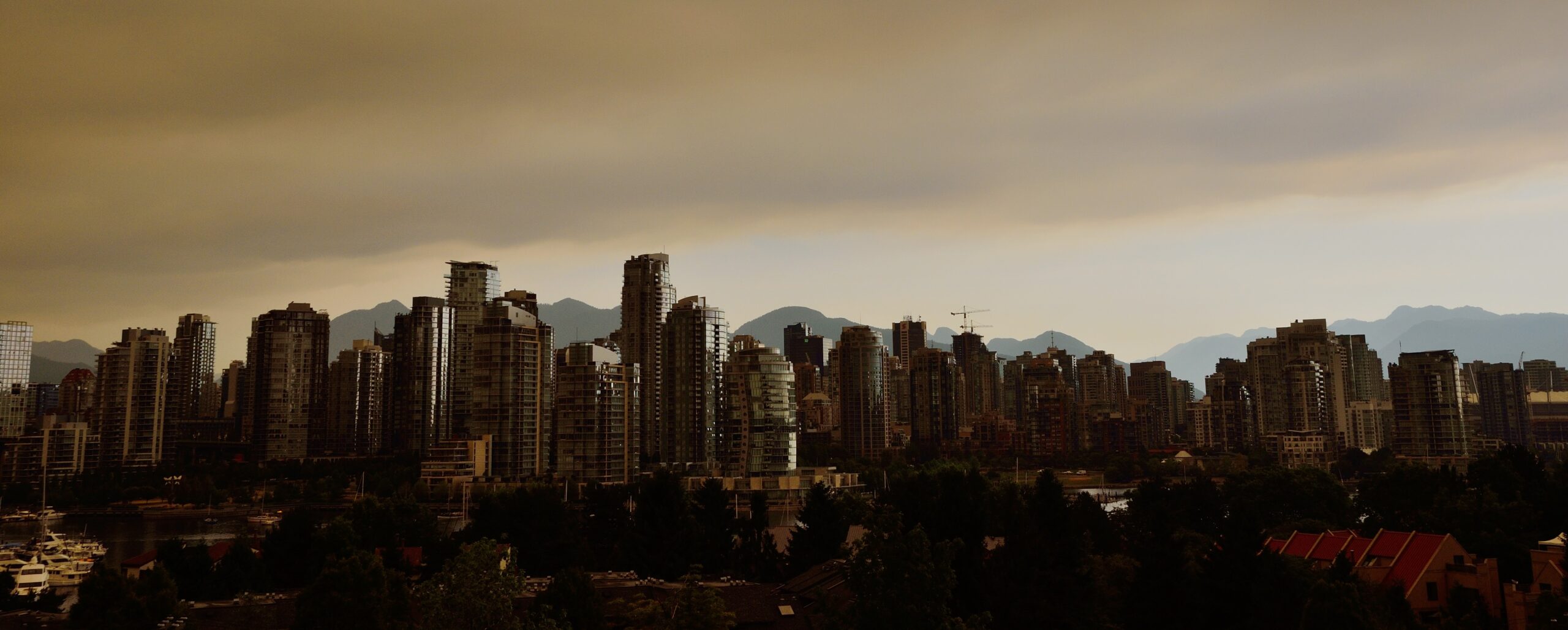Last July, the city of Vancouver pledged $1 per resident to bring a class-action lawsuit against the largest oil companies, but those funds are nowhere to be found in the 2023 budget.
By Andrew Gage
This piece was originally published on March 2, 2023 in The Vancouver Sun.
In 1988, scientists working for the oil giant Shell wrote in an internal memo that the burning of fossil fuels, if unchecked, would lead to changes to sea level and weather “larger than any that have occurred over the past 12,000 years.”
Year after year since then, the heat-trapping layer of fossil fuel pollution that causes climate change has grown, leading to impacts that those industry scientists predicted with stunning accuracy. But instead of acting on the science, the oil industry responded with denial and deception — casting doubt on the growing crisis, while raking in an average of $3 billion in profits each day.
Thirty-five years later, Vancouverites are experiencing the impacts of climate change firsthand. The 2021 heat dome killed 117 Vancouver residents (over 600 province-wide), a tragedy that disproportionately affected seniors, people with underlying health conditions and those living in poverty and isolation. Flooding and storms have also impacted residents, causing significant damage and wreaking havoc on the city’s beloved seawall.
Vancouver City Council has just passed its 2023 budget, including a 10.7-per-cent property tax increase, much of which is related to the negative impacts of climate change. In a recent interview, Mayor Ken Sim explained that more funds are needed to repair and upgrade aging sewer and water systems, in part to address increased flooding and rising sea levels. Other costs include increased road maintenance — larger due to climate-fuelled storms — and preparing the Kitsilano pool and other municipal infrastructure for climate change.
That’s on top of the approximately $50 million a year that staff have estimated the city is already paying to deal with climate impacts and resilience. The reality is that local governments face billions of dollars in costs to keep residents safe from climate impacts, and many more billions in damage and economic losses if they fail to do so.
Vancouver’s 2023 budget assumes that all those costs will fall to taxpayers — but frankly, we can’t afford it. Plus, until the cost of climate change shows up on the balance sheets of Shell and other fossil fuel companies, they will continue to work against real climate solutions.
Despite green marketing and pledges to reach net-zero, the oil industry has consistently used its influence to weaken climate policies and advocate for fossil fuel expansion. These strategies have worked out very well for wealthy executives: Shell’s profits doubled to a record $40 billion in 2022, alongside record-breaking profits at other global oil giants.
Oil companies have known for decades that they could be hauled into court over climate damages if the public learned of the depth of their denial. Another internal Shell memo in 1998 predicted a class-action lawsuit against oil and gas companies “on the grounds of neglecting what scientists (including our own) have been saying for years: that something must be done.”
There are now 40 local and state governments in the U.S. suing fossil fuel companies for their deception and its role in causing the climate emergency. In B.C., dozens of organizations and thousands of individuals — under the banner of the Sue Big Oil campaign — are calling on local governments to make the industry pay its fair share.
Last July, Vancouver was the first to get behind this idea, pledging $1 per resident to bring a class-action lawsuit with other local governments against the largest oil companies. Sue Big Oil is asking other municipalities to follow, as climate-related costs continue to mount from wildfires, floods, and more. But those funds are nowhere to be found in the 2023 budget, and a majority of council said that even one cent per resident is too much to spend to hold fossil fuel companies responsible.
By dropping its commitment, council is telling Vancouverites that in return for saving a few hundred thousand dollars today, they will need to pay hundreds of millions of dollars in climate costs in coming years, while letting big oil entirely off the hook.
We need climate leadership and fiscal responsibility from our elected officials. Vancouver council has failed on both counts. We must demand that our leaders set aside funds to protect us from climate change and take legal action to make major polluters, like Shell, pay their fair share.
Andrew Gage is a staff lawyer and climate lead with West Coast Environmental Law and works with the Sue Big Oil Campaign.
